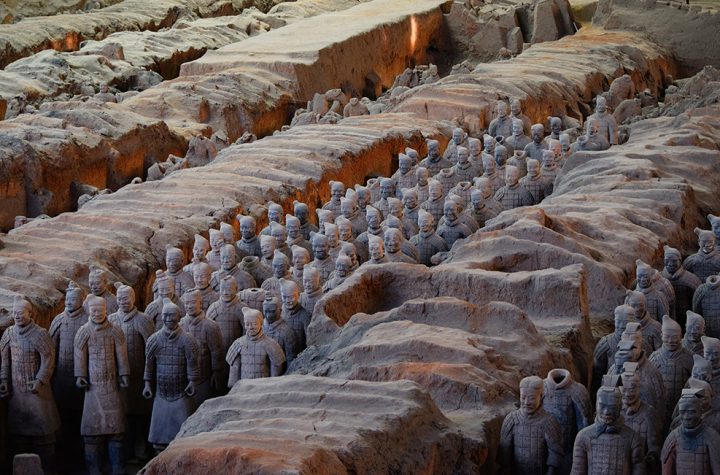
They can come up with things normal humans dont think about.
Thats how Israeli prime minister Benjamin Netanyahu praised the real-estate people, as he characterized President Trump and his family/advisers, for coming up with a new proposal to solve the Israeli-Palestinian conflict. Its a description that even many analysts who panned Trumps peace plan would agree with.
The proposals Trump unveiled alongside Netanyahu at the White House on Tuesday are an important attempt to shift the parameters of politics in Israel, the Arab world, and here in the U.S. Despite the way theyre being advertised, none of them have anything to do with achieving peace between Israelis and Palestinians; in fact, they are more mortal blows to the fading prospects of a two-state solution to the conflict.
For two decades, across Democratic and Republican administrations, through power shifts in Israeli and Palestinian leadership, the outlines of an Israeli-Palestinian peace deal have remained largely consistent. Shared sovereignty over Jerusalem, with both sides able to have their capitals in the historic city, and at least shared control of holy sites. Land swaps that consolidated Israeli and Palestinian communities, requiring evacuation of some Israeli settlements. At least a token recognition of the right of return for Palestinians exiled from their homes inside Israel. And a clear and immediate path to the emergence of a fully sovereign Palestinian state on the world stage, alongside a fully sovereign Israel two states whose security was to be grounded not in naïveté, nor in sheer force, but in mutual respect.
Trumps plan breaks with those decades-long expectations no evacuations of settlements, Palestinian presence in Jerusalem limited to the eastern outskirts, Palestinian diaspora not just barred from returning to Israel but limited in its ability to immigrate to Palestine. The territory proposed for Palestine is considerably less than what has been offered in the past. The deal doesnt include a path to statehood but rather talks of a future State of Palestine after, among other things, the Palestinian armed group Hamas (which currently controls the Gaza Strip, along with a significant portion of Palestinian territory and population) disbands. Israels security is to come not from its full, equal, unstinting inclusion in the community of nations as well as its national power, but from national power alone.
The plan may get some applause from Trumps allies in the Arab world three smaller states sent envoys to Trumps White House announcement, while the Saudis, notably, did not. But it faces absolute opposition from the Palestinian Authority, which has not engaged at high levels with the Trump administration since it moved the U.S. Embassy in Israel to Jerusalem.
Palestinians didnt need this plan, or Trumps threat that even its terms would only be on offer for four years, to tell them that Washington had no intention of pursuing their interests in negotiations. But the plan conveys to all sides that some of the compromises previous mediators had asked Palestinians to accept are now off the table that leaders need not ask their supporters to accept disappointment in exchange for an end to the conflict. That was always the core premise of the two-state solution, and there is a large risk that this move pushes it off the table for good.
But just because the plan wont bring peace doesnt mean it doesnt do anything. Netanyahu hopes it, and pictures of him with Trump endorsing it, bring him the majority in Israeli elections that he has failed to grab on the last two tries. (And if youre asking yourself, hey, wasnt Netanyahu indicted for corruption? The answer is yes, and hes still running for reelection and still welcome at the White House.)
Although Trump wouldnt allow him to join Netanyahu at the official announcement, the Israeli leaders centrist opponent Benny Gantz also endorsed the Trump plan. This brings us to its framers second goal realigning politics in Israel and the U.S. around a set of right-wing policy goals. Trump wants to lock down both Evangelical Christian Zionist and conservative Jewish voters for his reelection. Some of his more enthusiastic supporters believe they can move American Jews en masse into the GOP column. Thus far, polling provides no evidence to support this hope.
Finally, there are the actual right-wing policies. Some of Netanyahus supporters have urged him to act immediately to declare sovereignty over the areas that Trumps map shows as remaining with Israel. This would be another in a series of blows to the set of international legal norms that had, for decades, been the supposed foundation of a solution to the conflict and were meant to be norms that all sides benefited by observing. Netanyahus Cabinet will reportedly vote on annexing all settlements and Jordan Valley areas as early as Sunday. That move, if it happens, will produce another layer of crisis for U.S. (and Israeli) Arab partners, for the United Nations, and for Europe and in all likelihood violence and suffering for Israeli and Palestinian civilians.
What we dont need to wait to see is that U.S. policy toward the Israeli-Palestinian conflict is now irrevocably shaped by the worldview of Trump and his allies, in which it is in the U.S. interest that the strong do what they will and the weak endure what they must.
Thats a quote from Thucydides, the ancient Greek historian of the Peloponnesian Wars. As the eminent Republican national-security analyst Kori Schake has pointed out, we often forget that in his writings, disaster often strikes when ambitious usurpers, playing to the crowd, find that their appetites exceed their abilities. This cynical plan is one more step down that path for Trump and Netanyahu alike.
Daily news about the politics, business, and technology shaping our world.
Terms & Privacy NoticeBy submitting your email, you agree to our Terms and Privacy Notice and to receive email correspondence from us.





More Stories
As the pandemic wreaks havoc on TV and movie ‘love lives’, intimacy coordinators need to find ways to adapt